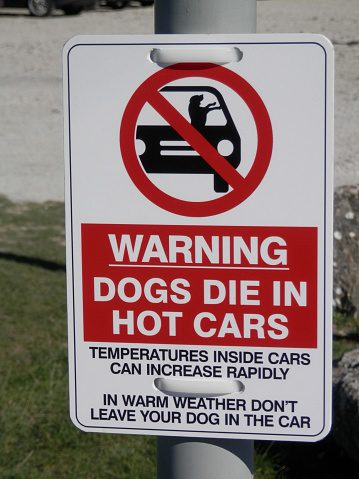
by Kerry E. McKinney, DVM
Here are some summer safety tips for pets and the most common summer emergencies for pets we see at Ann Arbor Animal Hospital.
Heat-Related Illness
Dogs and cats cannot effectively cool themselves by sweating and instead rely on panting, shade, plenty to drink, and the careful oversight of their owners. A study in Scientific Reports noted much higher risk for heat-related injury in dogs who were brachycephalic (flat-faced), older than 2, and over 100lb. Add to this list any pet overweight for their breed, exercising in high heat or humidity, or with predisposing cardiac or respiratory challenges such as laryngeal paralysis, asthma, collapsing trachea, or respiratory infection.

Signs of heat stroke can include heavy panting and a dark or muddy-colored tongue, collapse, vomiting, bloody diarrhea, seizures, organ-failure, and death. Prevention measures include avoiding exercise in hot or humid weather and NEVER leaving a pet in a car unattended. If your pet exhibits signs of over-heating and doesn’t respond within 15 minutes to gentle cooling measures, such as a fan or air-conditioned environment and dousing with room-temperature water, or improves and then appears lethargic, seek veterinary care on an urgent basis.
Allergic Reactions
‘Tis the season for bug bites and stings and plants that cause the itchies! Facial or muzzle swelling, hives and red skin are all signs of an inflammatory immune response to something in your pet’s environment. If a lukewarm water rinse or wipe with a cool, damp towel doesn’t quickly ease your pet’s signs, or if respiratory difficulty or collapse are noted, please seek veterinary care on an urgent basis.
Trauma & Travel
Motor vehicle injuries and bites from other animals rank near the top our emergency presentations this time of year. A properly secured safety harness or carrier can help reduce injury during travel, and a leash is your best friend’s best friend when you’re out and about in the community. Remain especially alert in warm weather when outdoor activities can mean frequently opened doors and gates which could allow a pet to slip out. Provide your pet with a current ID collar and registered microchip to increase the chance of a safe return if he gets lost near home or while traveling.
Mosquito, Flea & Tick-Borne Diseases
A list of summer safety tips for pets wouldn’t be complete without a note about those pesky parasites. From relatively simple yet agonizingly itchy flea-allergy dermatitis to potentially deadly Heartworm Disease, Bubonic Plague, Lyme Disease, Ehrlichiosis, Anaplamosis, Rocky Mountain Spotted Fever, Tularemia, Heartland virus, Powassan Disease and more, vector-borne illness is an increasing concern for both human and animal health. Careful attention to YEAR-ROUND flea and tick prevention and use of mosquito repellent will help decrease your family’s risk of contracting vector-borne illness.
Infectious Diseases
Increased time outdoors in the yard or at dog parks, camp grounds, lakes and rivers provides more opportunity for exposure to Leptospirosis, Rabies, Parvovirus, Upper Respiratory Disease, Feline Leukemia and Immunodeficiency Viruses, Giardia, and other infectious causes of diarrhea. Keep your pet’s vaccines and preventives up-to-date and limit exposure to areas where other pets and wildlife congregate to help prevent infectious illness.
Water-Related Dangers
As noted above, lakes and rivers provide increased opportunities for illness. Drowning and water intoxication are additional risks best managed with close supervision. Ponds with algal blooms are also best avoided as even a quick slurp can cause liver failure, respiratory arrest, and even death. If your pet returns from a dip with green slime on his fur, bathe him immediately and seek veterinary attention quickly if any signs of illness are noted.
On that note, we’re wishing everyone a safe summer!
Recent Posts
About Us
Ann Arbor Animal Hospital is a locally-owned animal hospital operating for over 90 years in Ann Arbor, MI.

